The resurgence of military coups renewed concerns about democracy backsliding on the continent and also underscored shifting regional alliances at a time when international peacekeeping efforts waned.
In Niger, a former French colony that's a key uranium exporter, soldiers toppled the country's democratically elected president, Mohamed Bazoum, in July. A month later, troops similarly staged a coup in Gabon overthrowing its long-term ruling president, Ali Bongo.
African unrest
The ripple of coups put governments across the region on high alert: Authorities in Sierra Leone arrested more than a dozen people in November, accusing them of launching a failed coup attempt President Julius Bio, who had been reelected only months earlier.
In Guinea Bissau, unrest between members of the National Guard and special forces of the presidential guard, described by President Umaro Sissoco Embalo as an "attempted coup," left at least two people dead.
Sudan, the East African nation that had been teetering since the overthrow of longtime ruler Omar al-Bashir, collapsed into conflict in mid-April.
The country's military and a paramilitary force known as the Rapid Support Forces, long linked to atrocities in Darfur, have been warring in a conflict that has killed some 10,000 people so far, internally displacing 7 million while another 1.5 million have fled into neighboring countries.
In Kenya, protests over the end of subsidies and tax increases mirrored continental concerns of cost-of-living crises and gloomy economic forecasts exacerbated by the COVID-19 pandemic and global food supply disruptions due to the Russia-Ukraine conflict.
Extreme weather and natural disasters
Globally, 2023 was the warmest year on record — Earth experienced its hottest Northern Hemisphere summer ever measured.
The world’s oceans were the hottest on record, according to the World Meteorological Organization and the European climate service Copernicus.
In Africa, the eastern region has experienced a series of severe weather events. Tanzania, Kenya, Somalia and Ethiopia battled flash floods caused by torrential rains linked to the El Nino weather pattern.
The United Nations says over 2 million people have been displaced as a result.
In September, a rare, powerful earthquake struck Morocco damaging thousands of villages in the mountains south of Marrakech and killing nearly 3,000 people.
The earthquake and several aftershocks left people and animals buried underneath mud and cinderblock for days as crews raced up narrow, windy roads to supply rescue and aid efforts.
In nearby Libya, a massive rainstorm on September 11 overwhelmed two dams and sent water rushing down to the eastern city of Derna, washing away whole neighborhoods full of people into the Mediterranean Sea. Government officials and aid agencies gave varied death tolls ranging from about 4,000 to over 11,000.
This year also brought Tropical Cyclone Freddy, the longest-lasting tropical cyclone ever recorded, which ravaged Madagascar, Malawi, Mozambique and Zimbabwe over two months killing at least 1,400 people, according to the World Health Organization.
Freddy exacerbated the cholera situation in the southern African nations, with extensive flooding leaving families homeless and reducing clean water access to many communities.
Elections
Elections in Africa began with a promising start in February, with little violence surrounding a much anticipated vote in Nigeria. Africa's most populous nation elected Bola Tinubu, though he ultimately won with less than 50% of the vote. Still, observers largely described the election as an improvement from 2019.
Then in August, Zimbabwean President Emmerson Mnangagwa was declared the winner of a disputed election. Both Western and African observers questioned the credibility of the vote, citing an atmosphere of intimidation ahead of the election.
That same month the Gabon's Bongo was deposed in a coup just hours after officials had announced his reelection.
In Senegal, uncertainty over President Macky Sall's political future fueled weeks of violent protests in the streets. While he ended years of speculation by declaring he would not seek a third term in office, opposition supporters continued to accuse his government of jailing their leader Ousmane Sonko to block his candidacy.
In December, a Senegalese judge ordered Sonko be reinstated on the electoral roll, paving the way for him to run in February's presidential election.
The December 20 elections in the Democratic Republic of Congo faced criticism from opposition for "chaos" and "irregularities" as delays pushed voting into a second day. CENI, the nation's electoral body, acknowledged the delays but denied that the legitimacy of the election was compromised by the extension of votes in some areas. President Felix Tshisekedi was announced winner of the disputed poll on Sunday with over 70% of the vote.
U.N. peacekeeping missions and French exit
In 2023, enormous U.N. peacekeeping missions in both Mali and the DRC saw the beginning of their departures. Leaders of both countries have said that the blue helmets ultimately failed in their efforts to bring about peace.
The DRC formally began the departure process by signing agreements with the U.N. to end the mission there after two decades. Ongoing violence in the country's embattled east, however, threatened to derail voting in areas under the control of M23 rebels. Civilians in the region also faced mounting attacks from ADF militants claiming links to the Islamic State group.
In Mali, peacekeepers began withdrawing from posts across the north after a decade-long presence. Not long after, the Malian military seized control of the rebel stronghold town of Kidal for the first time since 2012.
In December, France completed the withdrawal of its troops from Niger at the request of the new junta, ending years of on-the-ground military support and raising concerns from analysts about a gap in the fight against jihadi violence across the Sahel region of Africa.
Niger's junta, which has formed a security alliance with the military governments in Mali and Burkina Faso to coordinate counterterrorism operations across the Sahel, described the end of the military cooperation with France as the start of “a new era” for Nigeriens.
Notable moments
And 2023 also was marked by several high profile visitors to the continent. Pope Francis journeyed to the Democratic Republic of Congo and South Sudan where he focused on victims of war.
In Kenya, King Charles III expressed his "greatest sorrow and the deepest regret" for the violence of the colonial era, though he didn't explicitly apologize for Britain's actions in its former colony as many Kenyans had called for.
In a historic moment, South Africa's Springboks won the 2023 Rugby World Cup title after defeating New Zealand 12-11 in a nail-biting final. The Springboks secured their fourth title — the most in World Cup history — and became the second team to win the Webb Ellis Cup back-to-back.
This article was compiled with information from The Associated Press. Some information came from Agence France-Presse.
Editor's note: This report has been updated to include the results of the presidential election in the Democratic Republic of Congo.
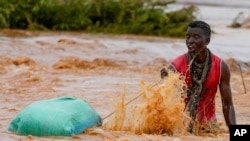
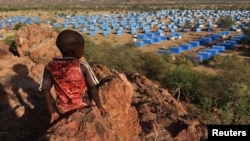
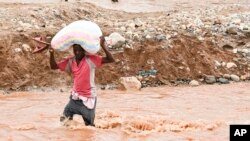
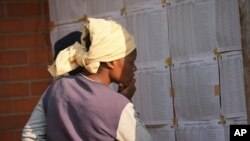
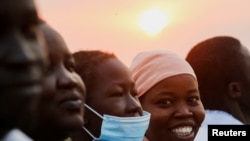
Forum